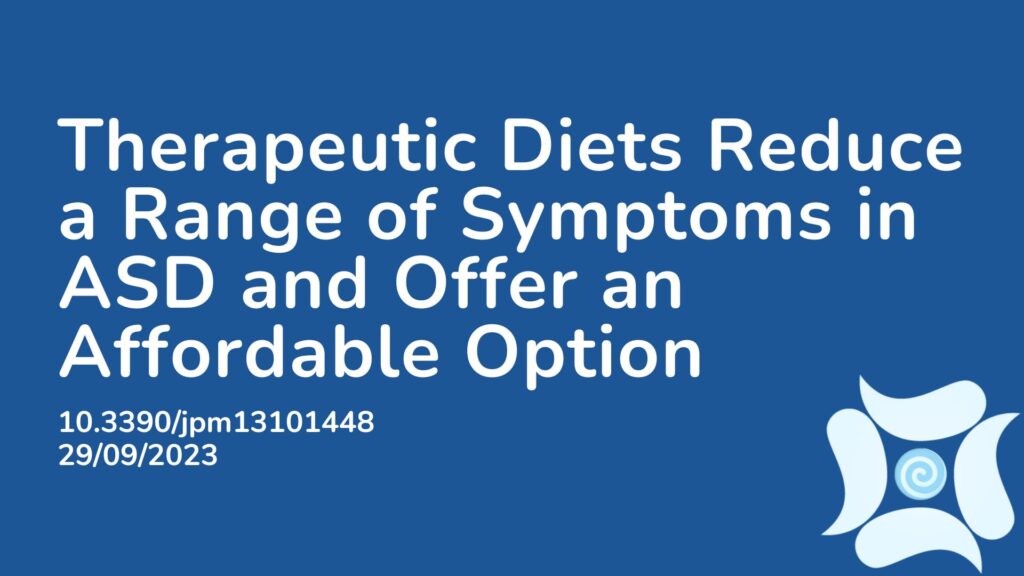Summary:
This study examines the effectiveness of 13 therapeutic diets for autism spectrum disorder (ASD), drawing from data provided by 818 participants in a national survey. The assessment includes the benefits, adverse effects, and improvements to symptoms associated with these diets. The Healthy (high intake of vegetables, fruit, protein and a low intake of junk food) and Feingold (reduced artificial food additives and salicylates) diet were the top-rated diets in terms of overall benefit to symptoms and management, while the ketogenic diet demonstrated the highest effectiveness for nine symptoms. Additionally, the gluten-free/casein-free diet ranked among the top performers for overall symptom improvements. Importantly, different diets were found to impact various symptoms differently, suggesting the potential for tailored dietary approaches based on an individual’s specific symptoms. Overall, the findings indicate that therapeutic diets can serve as safe and effective interventions for ameliorating certain ASD-related symptoms, with minimal adverse effects. The study recommends therapeutic diets that emphasize the inclusion of healthy foods while excluding problematic ones. Furthermore, given their affordability for most individuals with ASD, therapeutic diets should be suggested for consideration as part of normal treatment plans.
Abstract:
This study presents the results of the effectiveness of 13 therapeutic diets for autism spectrum disorder from 818 participants of a national survey, including benefits, adverse effects, and symptom improvements. The average Overall Benefit of diets was 2.36 (0 = no benefit, 4 = great benefit), which was substantially higher than for nutraceuticals (1.59/4.0) and psychiatric/seizure medications (1.39/4.0), p < 0.001. The average Overall Adverse Effects of diets was significantly lower than psychiatric/seizure medications (0.10 vs. 0.93, p < 0.001) and similar to nutraceuticals (0.16). Autism severity decreased slightly over time in participants who used diet vs. increasing slightly in those that did not (p < 0.001). Healthy and Feingold diets were the two top-rated diets by Overall Benefit; the ketogenic diet was the highest for nine symptoms (though had fewer respondents); and the gluten-free/casein-free diet was among the top for overall symptom improvements. Different diets were reported to affect different symptoms, suggesting that an individual’s symptoms could be used to guide which diet(s) may be the most effective. The results suggest that therapeutic diets can be safe and effective interventions for improving some ASD-related symptoms with few adverse effects. We recommend therapeutic diets that include healthy foods and exclude problematic foods. Therapeutic diets are inexpensive treatments that we recommend for consideration by most people with ASD.
Article Publication Date: 29/09/2023
DOI: 10.3390/jpm13101448



